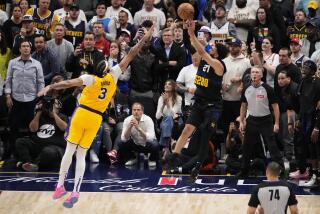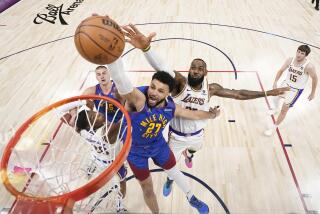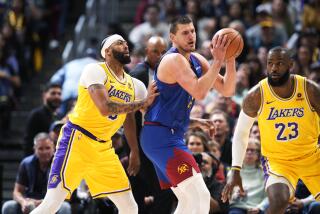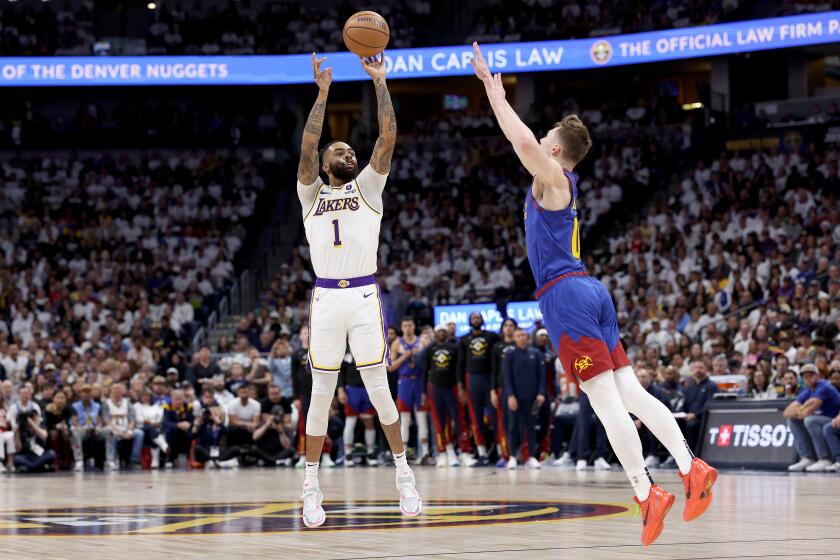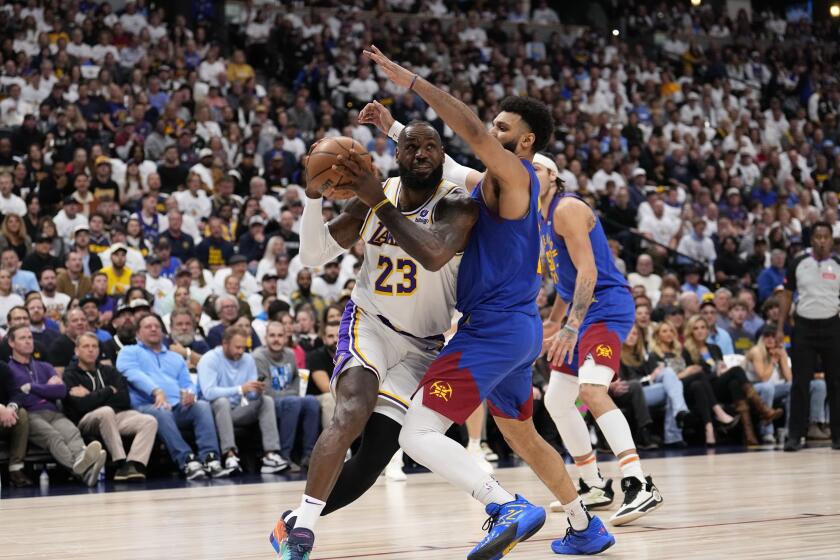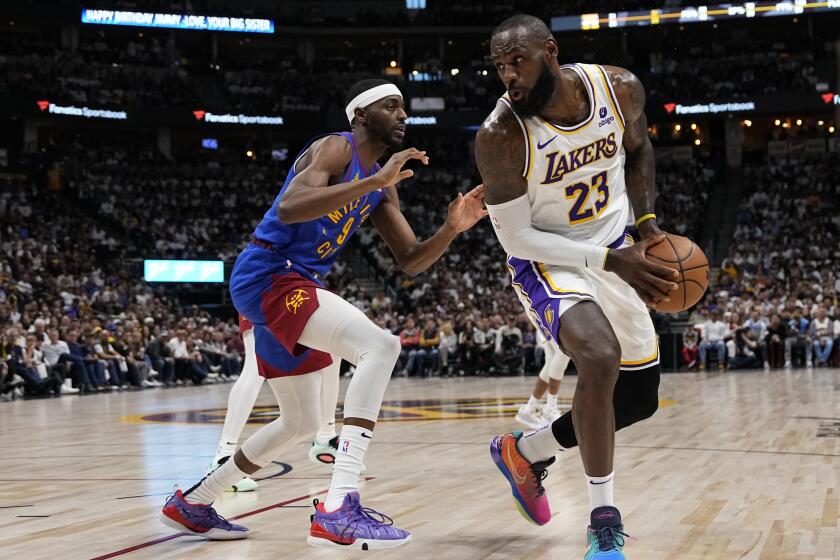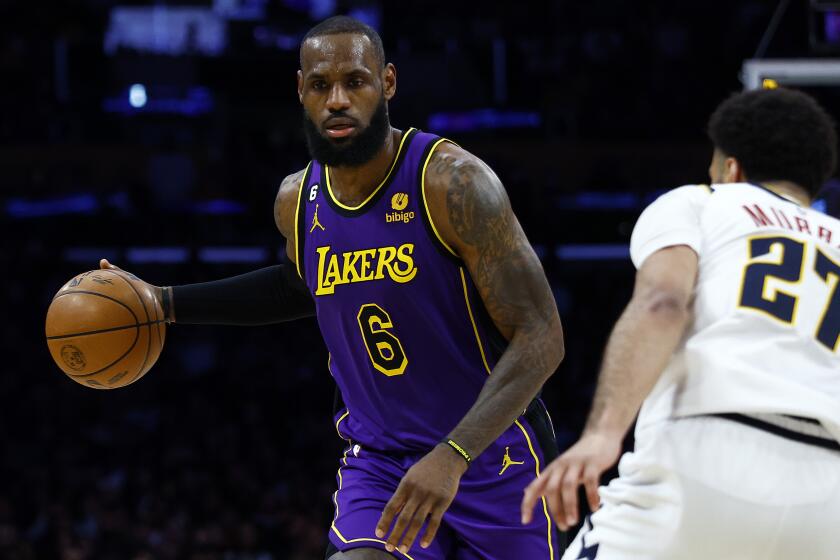Los Angeles Lakers consider how to make known their feelings about racial inequality
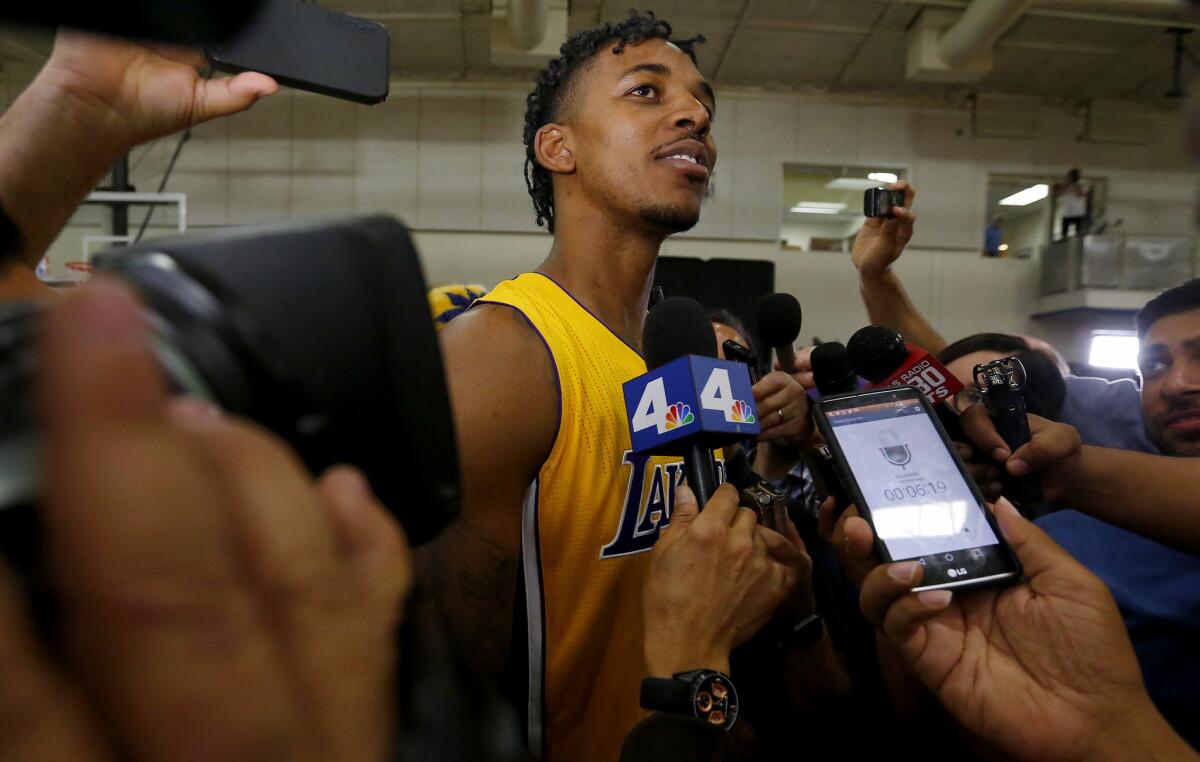
Lakers guard Lou Williams can’t pick just one police-related killing that sparked his outrage.
“There’s someone new that’s a hashtag every week,” he said. “For me it’s not about black people, it’s not about white people. It’s about getting killed and getting slaughtered in the street over childish crimes.”
Two incidents especially saddened Lakers forward Tarik Black.
“The man who was shot in front of his daughter and his girlfriend,” Black said. “And the one with the man who was with the kid who was mentally ill. He was laying on the ground with a firetruck.”
Lakers coach Luke Walton sees the need for change. “This country is too great to have happen what keeps happening,” he said.
As the Lakers prepare for their exhibition opener Tuesday night against the Sacramento Kings, they have discussed making a statement as a team to protest racial inequality. Theirs would follow a series of protests throughout sports that started with San Francisco 49ers quarterback Colin Kaepernick sitting for the national anthem during an exhibition game. Athletes have since joined his protests, from around the NFL to college to the WNBA to high schools.
Several Lakers want to be part of the change and are thinking beyond just making a statement during the national anthem.
“We have a big voice,” Black said. “… When people have influence, they definitely have to use it. With blessing comes responsibility.”
Lakers guard Nick Young was 6 years old when riots tore apart Los Angeles.
Police officers were acquitted of assaulting Rodney King, a black man whom the officers were videotaped beating with night sticks. That incident colored the way Young viewed police.
“Me, I grew up in L.A., in a city where I’ve been pulled over, I’ve been harassed, I’ve been a guy that fit the description of everybody,” Young said with a wry smile. “So I think it’s a great cause that I’m glad people are paying attention to it. I just hope they care less about the kneeling and more about the message.”
Personal experiences have impacted several Lakers’ opinions.
“I’ve been put in handcuffs over talking too loud with my friends leaving a party,” Williams said. “Put in handcuffs for talking the wrong way, pushed up against the car and it takes for another officer to recognize who I am for the handcuffs to be taken off and for me to be treated like a human being.”
One Laker, who asked not to be named, noted several similar incidents with friends and family. Another recalled being handcuffed leaving a basketball game in high school when he’d done nothing wrong. He and his friends sat on the sidewalk near their school while classmates walked by. After a while officers simply let them go.
Athletes’ hesitation to speak freely on the matter is common, especially among young players.
“I think that’s the lesson that a lot of people learn,” said Lou Moore, associate professor of history at Grand Valley State University in Allendale, Mich. “What happens to [Muhammad] Ali when he speaks out? What happens to [Olympians] John Carlos and Tommie Smith in ‘68 when they speak out? It quieted a lot of people. And even what happened to … Mahmoud Abdul-Rauf? So I think they’re just scared. This is their career and it’s only going to last so long for them.”
Sprinters Smith and Carlos won gold and bronze medals in the 200 meters at the Mexico City Olympics. Each raised a fist wearing a black glove while standing on the podium and were subsequently expelled from the Games. Abdul-Rauf was suspended by the NBA in 1996 for not standing during the national anthem.
The NBA’s stance has changed.
Last month the league and players union sent a memo urging players to think about how they could help affect change in their communities. The Lakers discussed the memo in a meeting last week. Walton and General Manager Mitch Kupchak both offered support for whatever they chose to do.
Players talked about perhaps making a statement during the anthem, but also reaching out in the community to use their time or money to try to inspire change.
Moore believes the team concept is part of what has stopped athletes from making individual statements in the past.
On the other hand, he noted that feeling part of a community can help spur athletes to action. Moore said athletes became more politically active after the March on Washington in 1963, which culminated in Martin Luther King Jr.’s “I Have a Dream” speech.
“There is a movement [now]: the Black Lives Matter movement, whether we’re talking about the political organization or the hashtag,” Moore said. “When you see people out on the streets blocking freeways, you have a sense of community and also a sense of protection because you’re part of the movement.”
The Lakers have urged the players to come to a consensus, or at least support each other.
That will take conversation. The stakes, after all, aren’t the same for every player.
“I think it’s mostly the American players have to decide,” said Marcelo Huertas, who was born in Brazil. He is one of six players on the Lakers roster who were born and spent most of their childhood outside the United States. “Us as international players, of course we have our opinions, but this is not our country.”
Black has been very close to police officers. Many of his friends were the children of policemen and his first coach was a police officer.
“I used to ride to practice in the police car with him,” Black said. “He was a great guy. Always around us kids, some of us were fatherless, some of us just needed a good mentor. Might have had a dad at home, but you still need a mentor I have great stories about the police as well.”
Too often, though, he and others see injustice. If their voices can change that, they’ll try.
tania.ganguli@latimes.com
Twitter: @taniaganguli
More to Read
All things Lakers, all the time.
Get all the Lakers news you need in Dan Woike's weekly newsletter.
You may occasionally receive promotional content from the Los Angeles Times.
